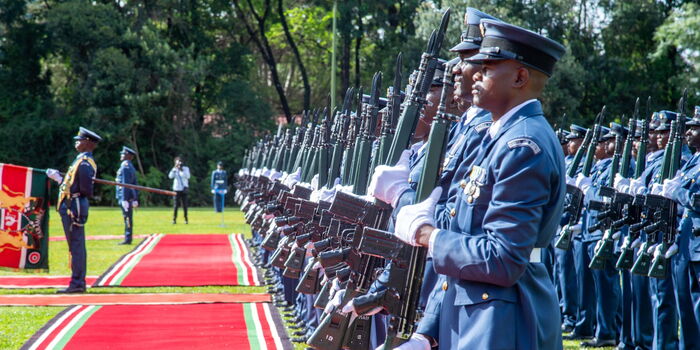Benefits for Families of Police Officers After Their Death
When a police officer dies in the line of duty, their family is entitled to financial support and various long-term benefits to help them cope with the loss. These benefits aim to reduce financial strain and ensure the officer’s dependents can maintain a stable life.
Financial Compensation
The amount of compensation given to the family depends on several factors, including the officer’s rank, salary, and years of service. In some cases, the total payout can reach several million shillings.
Currently, the government has committed to compensating the families of Kenyan officers who lost their lives while serving in the Haiti peacekeeping mission. So far, two officers have died, and one has already been buried.
The compensation process follows guidelines outlined in the National Police Service Act, regulations by the National Police Service Commission (NPSC), and the Work Injury Benefits Act (WIBA) of 2007.
Life Insurance Payout
All police officers are covered under a mandatory life insurance policy. When an officer dies, their family receives a lump sum payment equal to the officer’s salary for eight years.
For example, if an officer earned Ksh50,000 per month, the family would receive:
- Ksh50,000 × 12 months × 8 years = Ksh4.8 million
This amount provides financial relief to the officer’s dependents, ensuring they can cover essential expenses.
Death Gratuity
The family is also entitled to a one-time gratuity payment equivalent to six months of the officer’s salary. Using the same example, if the officer earned Ksh50,000 per month, the gratuity would be:
- Ksh50,000 × 6 months = Ksh300,000
This additional payout helps the family with immediate expenses following the officer’s death.
Compensation Based on Service Period
- If the officer had served less than one year, their family receives a payment equal to two times their annual basic salary.
- If the officer had served more than one year, their family gets four times their annual basic salary.
Funeral and Repatriation Costs
The government covers the funeral costs for fallen officers, providing between Ksh30,000 and Ksh50,000 to assist with burial arrangements.
For officers who pass away while on international duty—such as those serving in Haiti—the government takes responsibility for repatriating the body to Kenya, ensuring the family does not bear these expenses.
Pension for Long-Serving Officers
If the officer had served for more than 10 years, their dependents qualify for a pension. The family receives an amount equal to the officer’s last salary, paid over five years.
Additionally, if the officer was contributing to the Widows and Children Pension Scheme (WCPS):
- The widow receives a lifelong pension, unless she remarries.
- Children are eligible for financial support until they reach the required age—usually 18 years or 24 years if still in school.
Healthcare Benefits
The deceased officer’s spouse and children continue to receive free healthcare under the Social Health Authority (SHA). This benefit ensures they can access treatment at government hospitals without financial strain.
Education Support for Children
Children of fallen officers receive educational support through government programs. They are entitled to:
- Free primary and secondary education in public schools.
- University tuition waivers, reducing the cost of higher education.
This ensures that the officer’s children have access to quality education despite the loss of their parent.
Housing Assistance
The family of the deceased officer receives either:
- Government-provided housing, or
- A monthly housing allowance for up to two years after the officer’s death.
This benefit helps the family maintain stable living conditions while they adjust to life without their loved one.
Process for Claiming Benefits
To receive these benefits, the officer’s family must submit several important documents, including:
- Death certificate of the officer.
- Marriage certificate (if applicable) or birth certificates of children to confirm dependents.
- Service records of the officer.
- Bank details for payments.
The compensation and benefits provided to police officers’ families serve as a safety net, ensuring they can move forward with financial stability after the tragic loss of their loved one.
Join Gen z and millennials TaskForce official 2025 WhatsApp Channel To Stay Updated On time the ongoing situation https://whatsapp.com/channel/0029VaWT5gSGufImU8R0DO30


